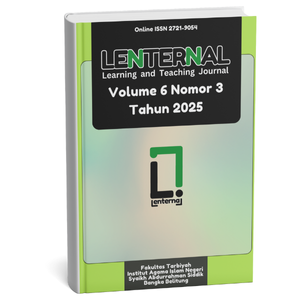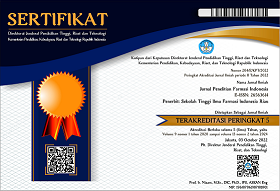The Relevance of Ecological Values in the Qur'an to the Modern Environmental Crisis
Abstract
The purpose of this study is to examine verses in the Qur'an that contain ecological values, such as the principles of khalīfah, amanah, mīzān, and the prohibition of fasād (environmental damage). This study is a qualitative study using a library research approach.
The results of the study show that the relevance of the Qur'an to the environmental crisis explicitly emphasizes the importance of preserving ecological values in the Qur'an, which include: "khalīfah (human leadership over the earth), mīzān (natural balance), prohibition against fasād (destruction on earth), i'tidāl and isrāf (moderation and prohibition of waste)“. Meanwhile, the relevance of Qur'anic values to the modern environmental crisis includes: ”Islamic Environmental Ethics Development, Solutions to Consumerism and Exploitation, Integration in Education and Public Policy, Strengthening Ecological Spirituality". The ecological values of the Qur'an in shaping ethics and environmental awareness in the modern era include: “The Qur'an as the basis of ecological ethics, its role in raising contemporary ecological awareness, the role of non-governmental organizations and communities in environmental preservation, the contribution of business actors and the industrial world in environmental preservation, the role of individuals and families in building ecological awareness”.







.png)





